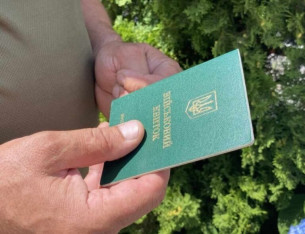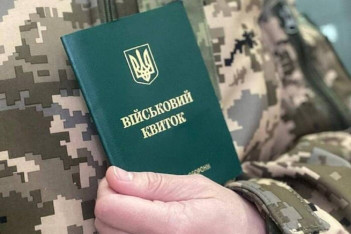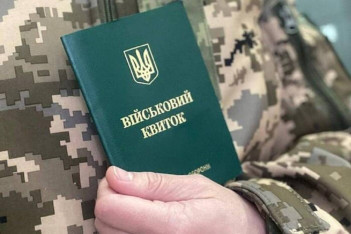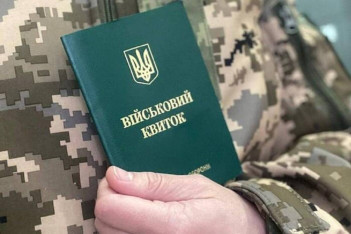Postponement of citizens whose close relatives died or went missing during ATO
Deferral of draft for citizens whose close relatives died or went missing during the anti-terrorist operation (ATO) is an important legal mechanism that allows you to preserve social justice and support those who have already experienced heavy losses. This issue requires clear orientation in the legislation and careful compliance with all necessary procedures. Legal assistance in this process is important because it ensures the correct execution of applications and documentation, and also helps in case of difficulties during the consideration of the application.
Legal stages of deferment for citizens whose close relatives died or went missing during the ATO
This process requires strict compliance with legal procedures:
- Legal consultation on the postponement of citizens whose close relatives died or went missing during the anti-terrorist operation. At this stage, the lawyer assesses the client's circumstances and determines the possibility of obtaining a postponement.
- Collection of documents. This is one of the most important stages. The list of necessary documents may include: death certificate of a relative, certificate of disappearance, extract from the military unit where the relative served, etc.
- Submission of documents to the Military Committee. After collecting the entire list of documents for postponement of citizens whose close relatives died or went missing during the anti-terrorist operation, they should be submitted to the military commissariat at the place of residence.
- Consideration of the application. The military commissariat examines the submitted documents and makes a decision on granting a postponement.
- Obtaining a decision. In the case of a positive decision, a lawyer for deferment of citizens whose close relatives died or went missing during the anti-terrorist operation helps the citizen to obtain an official document confirming the right to deferment.
Involving an experienced lawyer can significantly facilitate the passage of all stages and ensure a proper resolution of the issue.
Under what conditions can the deferment service be provided to persons whose relatives died or went missing during the ATO?
Respite for citizens whose close relatives died or went missing during ATO may be granted under certain conditions, including:
- Death or disappearance of a close relative during ATO. Close relatives usually include parents, children, husband/wife.
- Official documents confirming the death or disappearance of a relative. It can be a death certificate, a certificate of disappearance, or other official documents for deferment of citizens whose close relatives died or went missing during the ATO.
- Absence of other grounds for conscription. If a citizen has other reasons for dismissal from service, they must also be taken into account.
Understanding these conditions is important for everyone who wants to use this service. After all, each stage of the deferral process requires the availability of appropriate evidence and clear legal preparation.
Under what conditions can the deferment service not be provided to relatives of those who died or went missing during the ATO?

Lack of documents confirming the death or disappearance. If the citizen cannot provide the relevant official documents, this makes it impossible to grant a deferment.

Violation of application submission deadlines. The application for postponement must be submitted on time. Lateness may result in rejection.

Other circumstances excluding the possibility of granting a postponement. These can be, for example, criminal cases or lack of Ukrainian citizenship.
How can I independently obtain a deferment for a person whose relative died or went missing during the ATO?
Following all stages allows you to independently avoid delays and refusals when applying for a deferral:
- Acquaintance with legislation. It is important to understand your rights and obligations, as well as what documents are required to receive a deferral.
- Collection of documents. Each document must be properly formatted and contain all the necessary data.
- Consultation with the military commissariat. Before submitting the documents, you should contact the military commissariat for a preliminary consultation.
- Monitoring of the application status. Follow the status of your application and, if necessary, contact the responsible persons for clarification.
Independently processing a deferral requires attention and preparation. If you are not sure about the correctness of the steps, it is advisable to seek legal advice to avoid possible mistakes and receive a deferral as soon as possible.
Frequently asked questions about deferment for persons who lost a relative during the ATO
Question
How to find a lawyer for deferment of citizens whose close relatives died or went missing during the anti-terrorist operation?
Answer
To find a lawyer for adjournment for citizens whose loved ones have died or went missing during the anti-terrorist operation, several methods can be used. First, contact legal organizations or bar associations that specialize in military law or assistance to ATO participants. Second, visit relevant forums or groups on social networks where people share experiences and can advise a lawyer. Third, contact human rights organizations that provide free legal aid to victims of conflict. You can also contact local military commissariats or veterans assistance centers, where they can point you to a suitable specialist.
Question
What documents are required for the postponement of citizens whose close relatives died or went missing during the anti-terrorist operation?
Answer
In order to receive a postponement of conscription for military service, citizens whose close relatives died or went missing during the anti-terrorist operation, must submit the following documents: first, a death certificate or a court decision declaring the relative missing. Second, a document confirming the family relationship with the deceased or missing person (birth or marriage certificate). Thirdly, it is necessary to provide an extract from the military commissariat about the death or disappearance during the performance of official duties. It is also necessary to have a relative's certificate of a participant in hostilities or a corresponding document confirming participation in hostilities. All these documents are submitted to the military commissariat for consideration of the issue of granting a postponement.
Question
How much is a legal consultation on the postponement of citizens whose close relatives died or went missing during the anti-terrorist operation?
Answer
The cost of legal advice on deferment for citizens whose close relatives died or went missing during the anti-terrorist operation depends on the specific lawyer or law firm. Some lawyers may offer free consultations for such cases, particularly in public organizations or charitable foundations. The cost also depends on the complexity of the case and the need for additional services. It is recommended to contact several specialists to compare prices and conditions.
The cost of the deferment service for citizens whose close relatives died or went missing during the ATO
The price of the deferral service for citizens whose close relatives died or went missing during the ATO may depend on several factors. This includes the complexity of the case, the number of required documents, the need for additional consultations or court hearings, as well as the experience and qualifications of the lawyer. If the case requires appealing the refusal or representing interests in court, the cost of the service may increase. The price is also affected by the region where the service is provided and the urgency of its implementation.
ConclusionInvolving a qualified lawyer when applying for a deferral for close relatives of those who died or went missing during the ATO provides proper legal support and increases the chances of successfully obtaining a deferral. Proper documentation, timely application, and consideration of all legal nuances can reduce the risks of rejection and provide support for those who have already suffered a great loss.




































